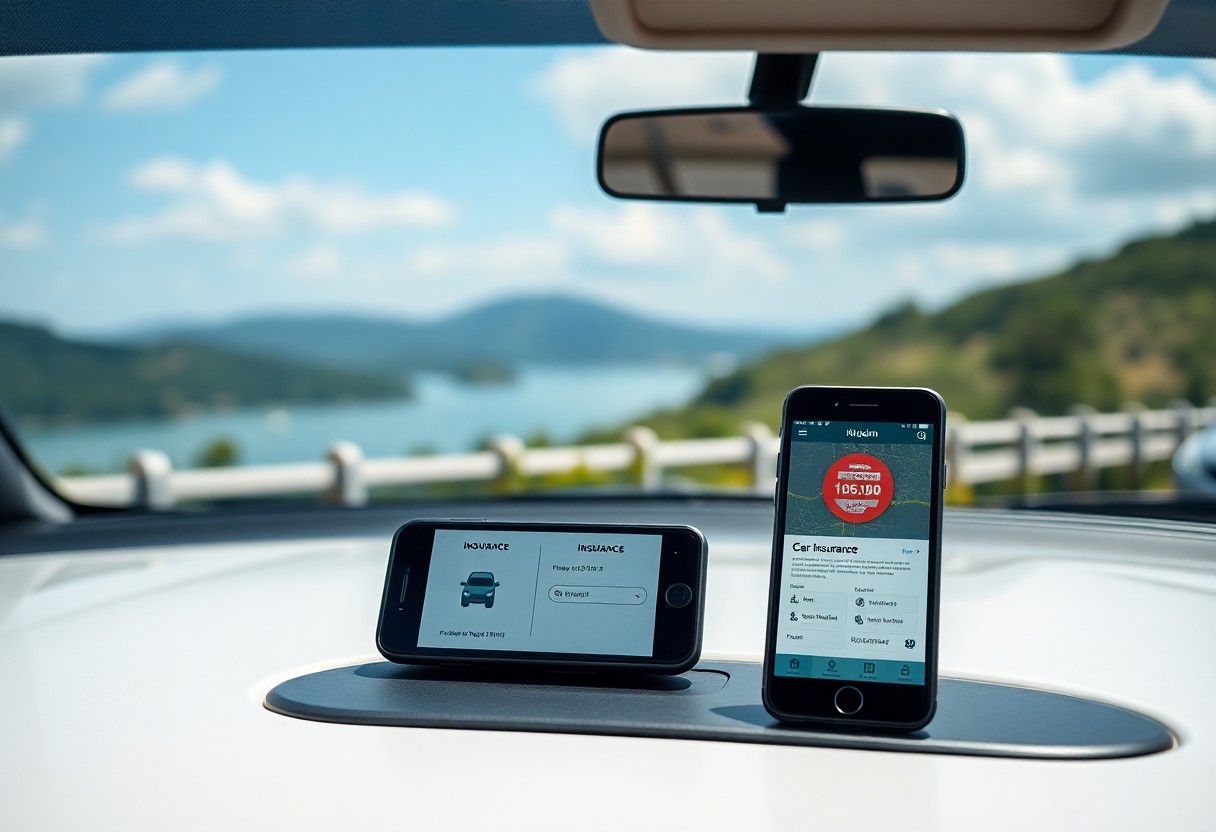When evaluating the various costs associated with renting a vehicle, it can be easy to overlook car insurance as just another expense. However, it is crucial to understand that this insurance serves as your essential safeguard against potentially devastating financial consequences. The task of selecting the appropriate insurance can feel overwhelming due to the myriad of options available. Yet, making an informed decision regarding your rental car insurance is vital for protecting yourself from unexpected expenses that can run into thousands of dollars. Whether your travel is for business or pleasure, having a comprehensive grasp of your insurance options empowers you to make well-informed choices that can save you money and reduce future stress. This extensive guide is designed to equip you with all the insights you need about rental car coverage, covering everything from basic liability insurance to extensive packages tailored to your specific requirements.
Mastering the Fundamentals of Rental Car Insurance for Your Protection
Securing rental car insurance is not merely a suggestion; it’s a vital safety net that shields you against unexpected financial burdens. To effectively manage this crucial aspect of your car rental experience, it’s imperative that you familiarize yourself with the primary types of coverage available. These include collision damage waiver (CDW), liability protection, and personal accident insurance. Research shows that approximately 1 in 6 rental car customers will face some kind of incident, underscoring the importance of having the right insurance coverage. This is not just a precaution; it’s essential for ensuring your peace of mind and financial security while traveling.
Grasping the Legal Insurance Requirements for Renting Cars
When you decide to rent a vehicle in any state across the United States, it is vital to be aware that you are legally obligated to carry a minimum level of liability insurance coverage alongside your valid driver’s license. While your personal auto insurance may extend to cover rental vehicles, it’s essential to be vigilant about potential coverage gaps that could leave you financially unprotected. Therefore, it is crucial to verify the specifics of your current insurance policy and to comprehend local regulations regarding rental car insurance before considering the option to decline additional coverage offered by the rental company.
Evaluating the Financial Protection Provided by Rental Car Insurance
Obtaining financial protection through rental car insurance is fundamental for shielding yourself from potentially overwhelming costs stemming from accidents or damages. When you rent a vehicle, you are faced with various coverage options that include protection for damage to the rental car (CDW), liability for damages caused to third parties, and personal injury protection. Considering that average repair costs for rental vehicles often soar beyond $3,000, having the right insurance coverage becomes your most effective financial safeguard. Beyond the basic policies, it is important to assess specific factors that could influence your insurance needs, such as your travel destination, the length of your trip, and your personal risk tolerance. While many credit cards provide rental car protection, these benefits frequently come with restrictions that need to be scrutinized. Understanding deductibles, coverage limits, and policy exclusions is crucial to ensure you have comprehensive protection tailored to your specific situation.
Identifying the Key Types of Primary Insurance Coverage for Rentals
When you rent a car, you'll encounter a variety of essential insurance coverage options that are designed to protect you and the vehicle you are renting. These coverage types range from basic liability insurance to more extensive protection plans. Familiarizing yourself with these options is vital for making informed decisions about your rental car insurance. Understanding these policies ensures that you are adequately safeguarded during your travels, allowing for a worry-free experience on the road.
| Coverage Type | Protection Offered |
|---|---|
| Collision Damage Waiver | Vehicle damage and theft protection |
| Liability Insurance | Third-party injury and property damage |
| Personal Accident Insurance | Medical expenses coverage |
| Personal Effects Coverage | Protection for personal belongings |
| Supplemental Coverage | Additional protection beyond standard coverage |
Deep Dive into Collision Damage Waiver and Loss Coverage
When it comes to insurance for your rental vehicle, you can expect comprehensive coverage that safeguards against damages resulting from accidents, theft, or vandalism. Generally, this type of coverage comes with a deductible that typically ranges from $250 to $1,000, depending on your specific insurance plan. In most circumstances, any damage incurred to your rental car will be covered, providing you with peace of mind as you navigate your travels. Grasping the nuances of this coverage is essential, as it ensures that you are not left financially exposed while you are on the road.
Understanding Liability Protection Options for Rental Vehicles
One of the most crucial components of rental car insurance is liability protection. This coverage is vital for safeguarding you against claims made by third parties for bodily injuries or property damage that may arise during your rental period. Typically, liability coverage limits can range from $50,000 to $1 million per incident, giving you a safety net should any unfortunate incidents occur. Losing your personal liability protection could expose you to significant financial risks, as your policy often covers legal defense costs and settlement payments up to the specified coverage limit. You have the option to choose between standard liability coverage or supplemental protection to obtain enhanced security during your rental experience.
Considering Additional Secondary Insurance Options for Enhanced Protection
Now that you have a solid grasp of primary coverage options, it is time to contemplate additional layers of protection that can enhance your rental car experience. These secondary insurance options are specifically designed to fill critical gaps in your coverage, offering up to $300,000 in extra protection beyond your primary insurance plan. These additional policies can be particularly advantageous when the standard coverage is insufficient for your particular needs.
Maximizing Security with Personal Protection Plans
Personal Protection Plans are structured to fortify your safety net, offering comprehensive coverage for medical expenses and protection for personal belongings throughout your rental period. These plans typically cost between $5 and $15 per day and can cover medical costs of up to $50,000 for you and your passengers. Moreover, your valuable items receive coverage against theft or damage while inside the rental vehicle, ensuring you have additional peace of mind as you travel.
Property Protection Coverage: Ensuring the Safety of Your Valuables
Beyond personal protection, Property Protection Coverage is critical for safeguarding your belongings inside the rental car. This type of coverage can reimburse up to $2,500 for individual items if they are stolen or damaged during your rental period. Notably, Property Protection Coverage goes beyond mere theft protection. It also encompasses incidents such as vandalism, natural disasters, and damage from accidents where you are not at fault. This means you will receive coverage for a wide array of personal items, including electronics, luggage, and other valuables, with generally low deductibles ranging from $50 to $100 per claim, making it a wise investment for travelers.

Assessing Specialized Coverage Options for Unique Travel Needs
Your rental car insurance requirements may go beyond the standard coverage options, depending on your specific travel plans and unique circumstances. If you are planning an adventurous trip that involves off-road driving or transporting valuable equipment, specialized coverage options can offer tailored protection to suit your specific situations.
Exploring Supplemental Insurance Types for Enhanced Security
| Coverage Type | Protection Offered |
|---|---|
| Equipment Coverage | Protects specialized equipment and modifications |
| Off-Road Protection | Covers damage during authorized off-road use |
| International Coverage | Extends protection across country borders |
| Commercial Use | Covers business-related vehicle use |
| Extended Duration | Protection for long-term rentals |
Essential Roadside Assistance Options for Unexpected Situations
In addition to standard insurance coverage, considering roadside assistance is crucial for receiving support during unexpected situations. This service includes 24/7 emergency help, towing services, and mechanical assistance that can prove invaluable in stressful circumstances. Understanding the roadside assistance options available to you can save you from incurring hefty recovery costs while providing you with peace of mind as you travel.
Roadside assistance packages typically cover battery jump-starts, fuel delivery, lockout services, and tire changes. These services are particularly useful in unfamiliar areas or for long-distance journeys. Rental companies often offer basic packages starting at $5 per day, while comprehensive coverage options that include unlimited service calls may be available for an additional fee.
Evaluating the Cost Considerations for Rental Car Insurance
To make an informed decision regarding rental car insurance, it is essential to carefully assess the daily costs against the potential out-of-pocket expenses you might face in the event of an accident. Insurance rates typically range from to per day for basic coverage, while more comprehensive protection can escalate to as high as $50 per day. Viewing these costs as an investment rather than a mere expense can significantly enhance your ability to make well-informed choices regarding your insurance needs.
Understanding the Key Factors That Influence Your Premium Rates
Regarding rental car insurance, there are several critical factors that can influence your premium rates:
- Vehicle type and value
- Rental duration
- Your driving history
- Location of rental
- Coverage level selected
By recognizing these factors, you can better anticipate your insurance costs and potentially discover ways to lower them.
Exploring Various Payment Structures for Insurance Plans
In the realm of rental car insurance, you will come across a variety of payment options. Most rental companies provide daily rates for short-term rentals, while extended rentals might qualify for weekly or monthly discounts. Your choice between upfront payment or per-day billing can significantly influence your total insurance expenses.
Cost structures can vary widely among rental providers, with bundled packages often delivering better value. For example, by combining various coverage types, you could realize savings of 15-20%. Additionally, some companies offer loyalty programs that can further decrease your insurance costs by up to 25% for frequent renters, making it worthwhile to explore these options thoroughly.

Making Savvy and Informed Decisions About Your Insurance
Making educated choices regarding rental car insurance demands a strategic approach. Recent industry data indicates that a staggering 65% of renters end up overpaying for insurance coverage they do not require. Your decision-making process should aim to strike a balance between cost-effectiveness and comprehensive protection. Before making additional purchases, it is wise to review your existing coverage through credit cards or your personal auto insurance to avoid unnecessary expenses.
Thoroughly Assessing Your Insurance Coverage Needs
After determining your specific insurance needs, it is essential to evaluate each coverage option in light of your personal circumstances. Your existing auto insurance may already provide primary coverage up to $100,000 for rental vehicles, making it crucial to review this before opting for extra protection. Additionally, many premium credit cards offer collision damage waiver (CDW) without any additional cost, allowing you to potentially save significantly. Conducting this evaluation can save you as much as $30 per day on unnecessary coverage.
Strategically Selecting Policies to Fill Your Coverage Gaps
Once you have identified your coverage gaps, the next step is to choose policies that effectively address these specific needs. Your selection strategy should focus on key areas of coverage while avoiding redundant insurance. When determining your insurance requirements, consider your destination, the length of your rental, and the value of the vehicle you intend to rent. Statistics show that supplementary liability insurance is especially valuable in urban environments, where accident rates can be up to 40% higher.
Choosing the right rental car insurance requires careful consideration of multiple factors. Personal risk tolerance, your travel location, and your existing coverage are all critical in making a well-informed decision. Industry reports indicate that selecting the right combination of coverage can save you as much as 60% on insurance costs while ensuring you are adequately protected. Focus on policies that specifically address your vulnerabilities, rather than accepting standard packages that may not comprehensively meet your needs.
Key Takeaways on Making Informed Rental Car Insurance Choices
Your selection of rental car insurance holds significant weight in determining the quality of your travel experience. A thorough understanding of the various coverage options available—from collision damage waivers to roadside assistance—empowers you to take charge of your financial protection and peace of mind. Before you pick up your next rental vehicle, invest time in assessing your existing coverage, comparing available options, and selecting the insurance that best meets your needs. The informed choices you make today regarding insurance can help you avoid substantial headaches in the future, ensuring a smooth and worry-free rental experience.
The Article: The Complete Guide to Rental Car Insurance: What You Need to Know appeared first on https://rentacar24.org/
The Article Rental Car Insurance: The Complete Guide to What You Need to Know First Appeared ON
: https://ad4sc.com
The Article Rental Car Insurance Guide: What You Need to Know Was Found On https://limitsofstrategy.com



You bring up such an important point about rental car insurance and the often-overlooked implications of not being adequately covered. I remember a road trip I took a couple of summers ago. I was so focused on the excitement of the journey that I almost bypassed the insurance selection process. Fortunately, I had done a bit of research beforehand, so I felt somewhat prepared. However, I still underestimated the variations in policies and the potential financial fallout from an accident.
You raised some excellent points about the importance of being ready for the insurance side of things before hitting the road. It’s funny how the thrill of a road trip can sometimes overshadow the practicalities. I get it—you’re focused on the adventure, the sights, and all the random stops along the way. But that insurance selection process? It’s definitely worth some attention.
This discussion about rental car insurance is particularly relevant, especially given how easily one can overlook this crucial aspect of travel preparation. In my experience, I’ve often found myself in a situation where I had to navigate through various insurance options during last-minute trips. The complexity of the offerings can be daunting, especially when balancing coverage levels with the associated costs.
Your exploration of the often-overlooked aspect of rental car insurance hits home for anyone who’s experienced the anxiety of managing unexpected costs during travel. It’s so true that the complexity of insurance options can make even the most seasoned traveler hesitate. Yet as you rightly point out, understanding our coverage options isn’t just about compliance; it serves as a vital shield against financial pitfalls that could easily overshadow our journeys.